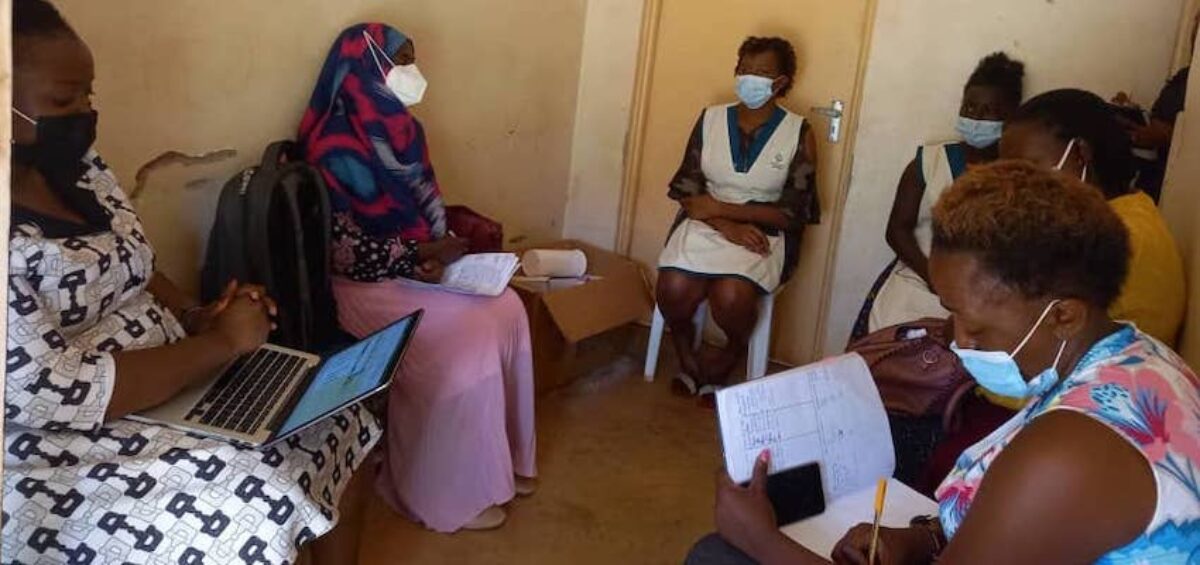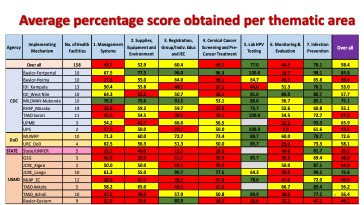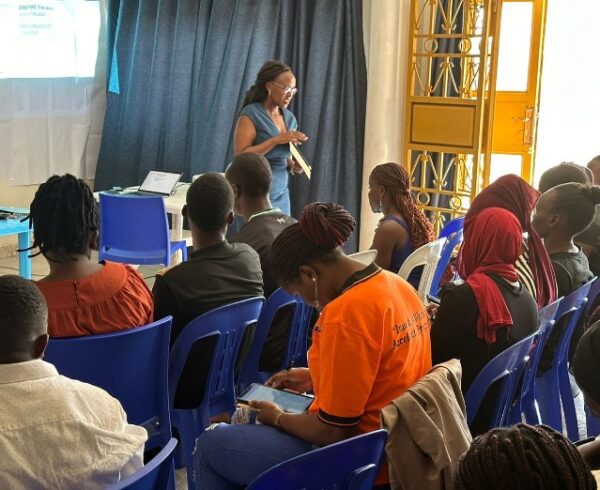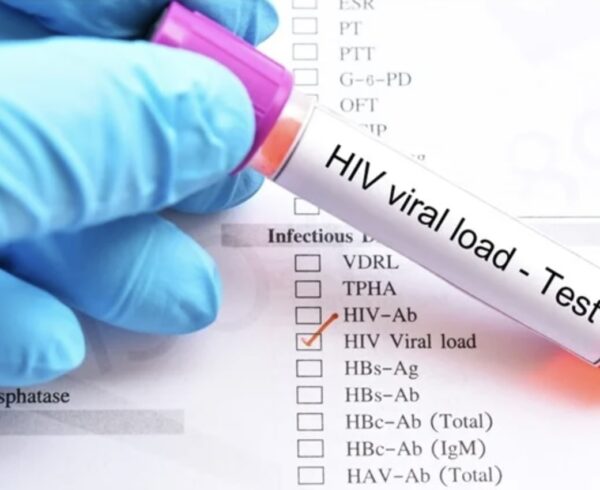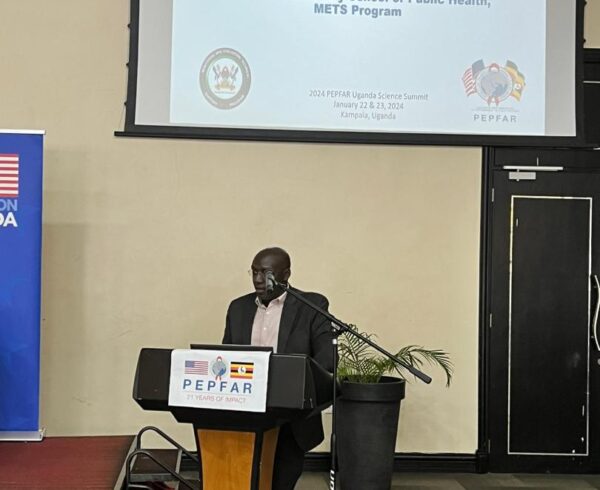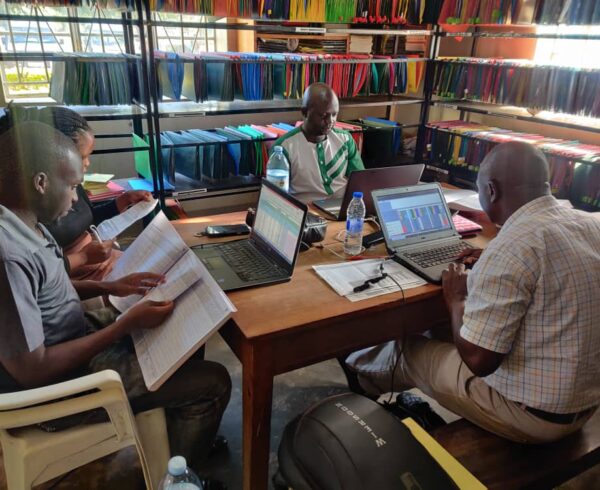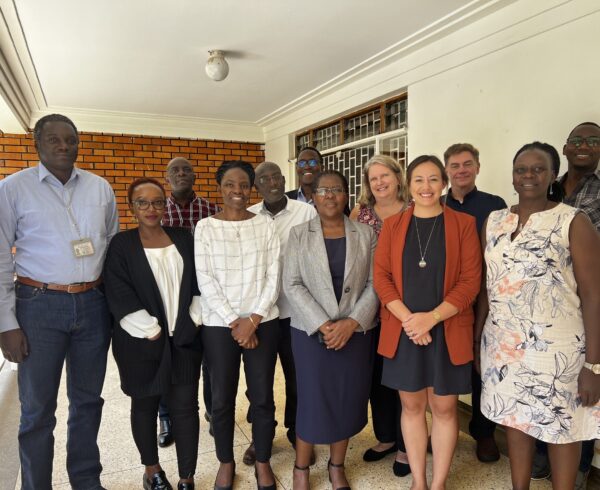Cancer of the cervix (CaCX) is the leading cause of cancer-related deaths among women in Uganda, affecting over 1 in 2000 women every year. Women living with HIV have a substantially increased risk for cervical cancer when compared to women without HIV infection. To this end, the Uganda Ministry of Health (MOH), with support from PEPFAR established a national cancer screening program in January 2021 aimed at early identification and prompt referral for treatment.
Early this year, the MOH in collaboration with Makerere University School of Public Health Monitoring and Evaluation Technical Support Program (MakSPH-METS) and other Partners conducted an assessment to better understand how well facilities adhere to the standards that were set by MOH, what challenges providers are facing and what can be done to address the current gaps as part of program improvement.
Overall, 58.5% average score was achieved for the CXCA Service Quality assessment. Notably, Laboratory HPV testing and Infection Prevention and Control (IPC) thematic areas performed fairly with an overall average score of 77% and 76% respectively. These results were from a baseline activity and concerted efforts are being put in place, in partnership with Implementing Partners and site teams, to ensure that the outcomes of the data going forward are improved.
The assessment identified a number of challenges including: Limited understanding of CXCA reporting indicators; inadequate skills and capacity to provide CXCA service procedures; non- availability of reference documents, SOPs, workplans and IEC materials; poorly documented roles and responsibilities of the facility teams; and limited data analysis and use.
The table below shows the detailed average scores for all the CXCA SQA thematic areas cross supported regions and implementing mechanisms.
The activity resulted in recommendation for intervention for thematic areas of Management Systems, CXCA screening and pre-cancer treatment and completeness of registers as well as addressing the need to provide missing critical tools and consistent supply of CXCA commodities (HPV kits). Regular onsite mentorship was identified as critical for improved skills and quality in service delivery.
The results from the DQA were disseminated during a meeting with DOD, UNHCR, USAID SITES. The activity was held from 10th to 21st January 2022 and from 24th Jan to 4th Feb 2022.

